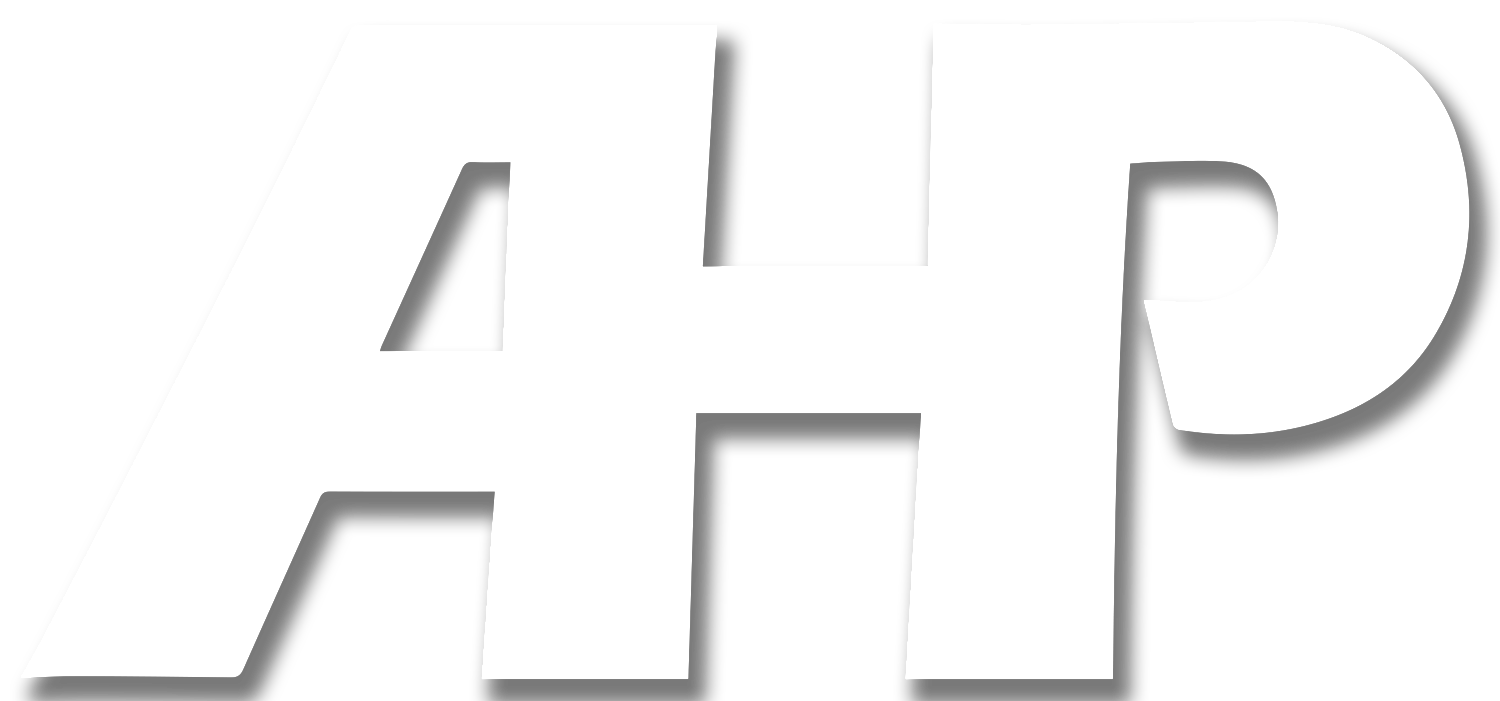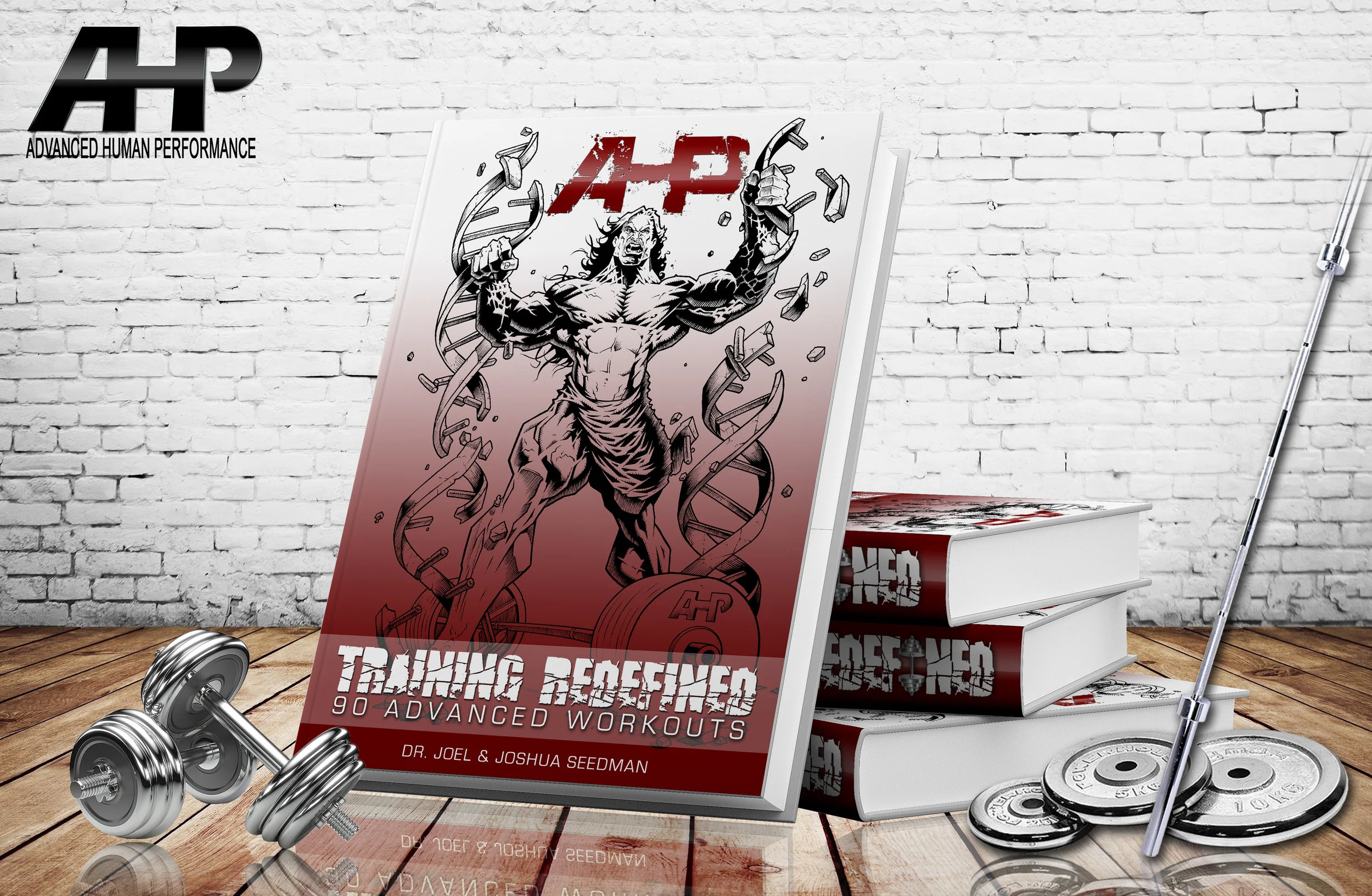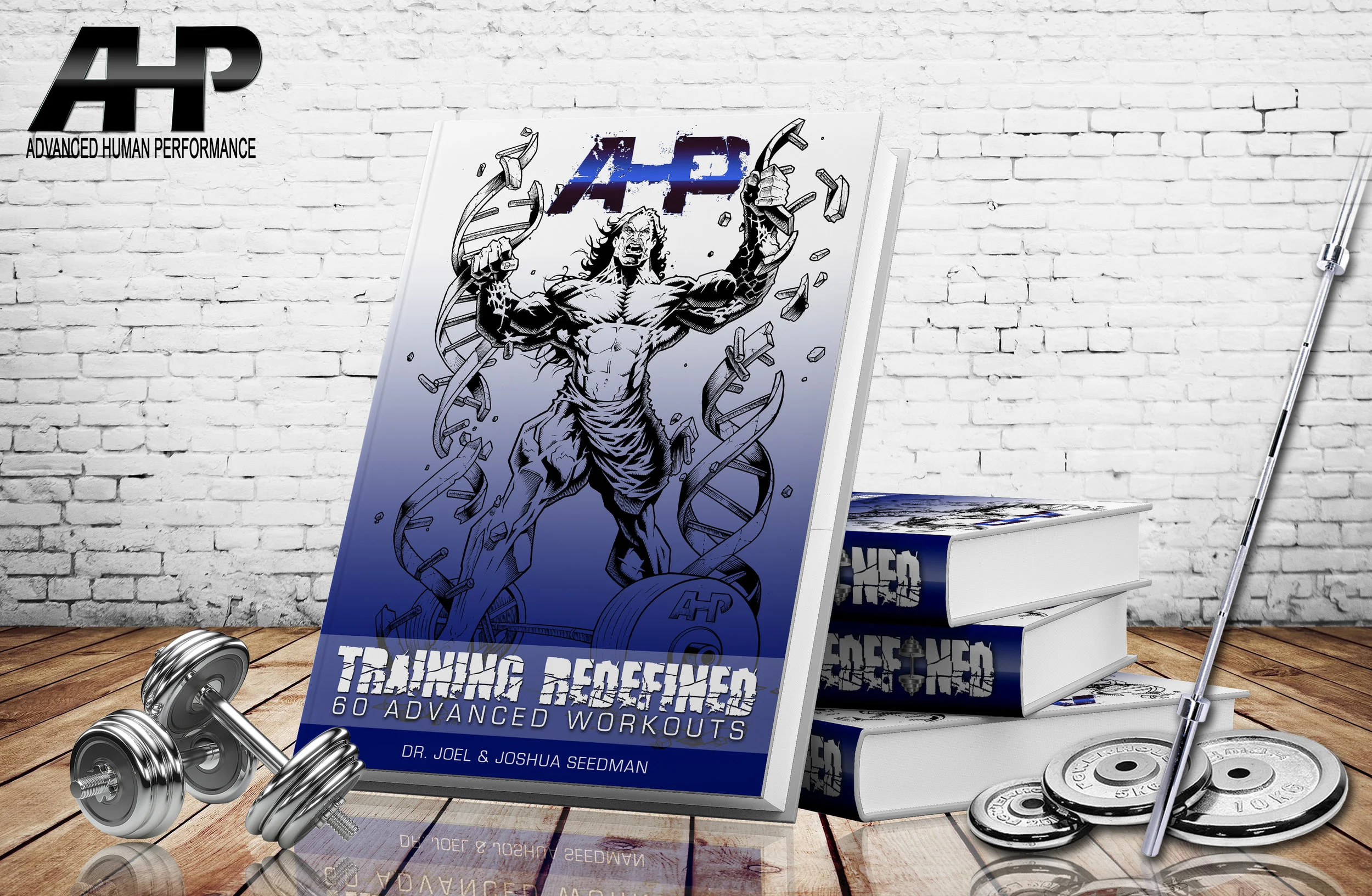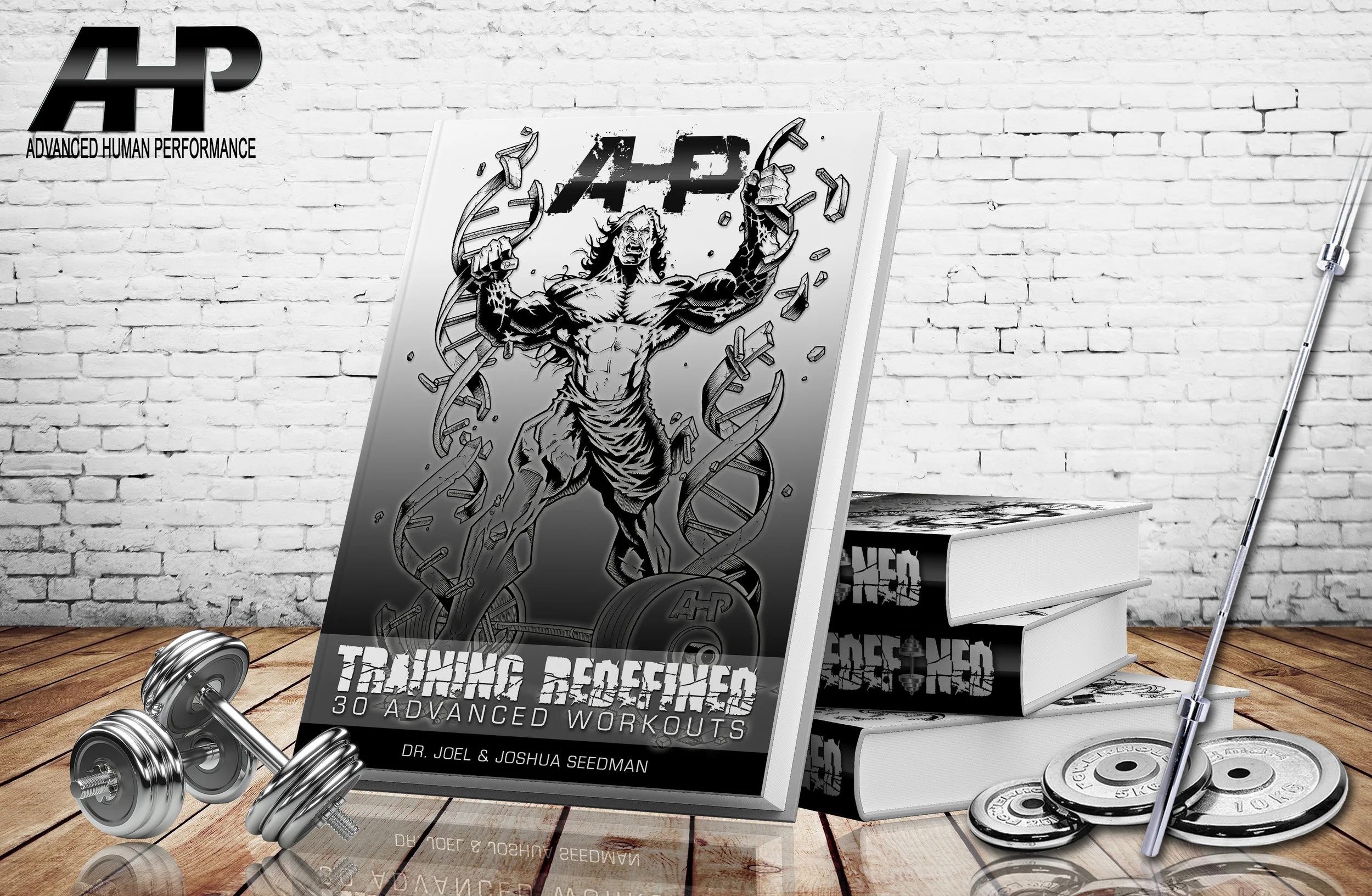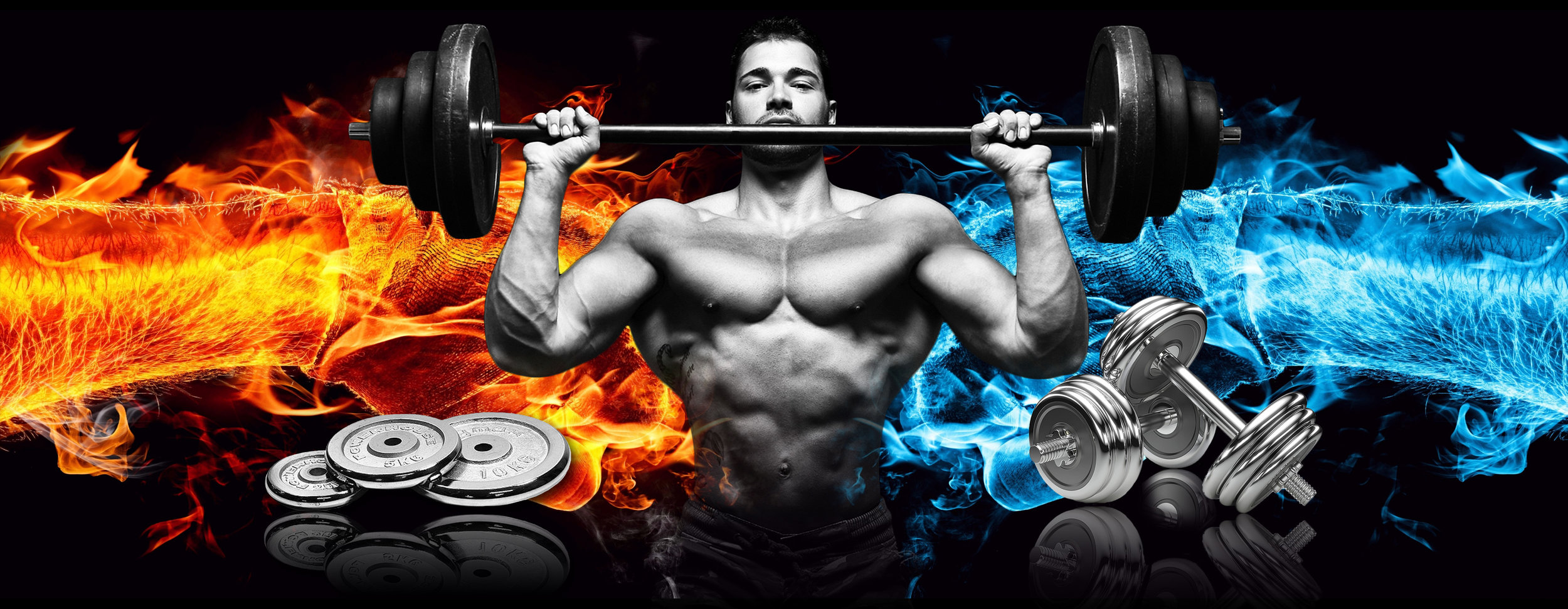The Best Zercher Squats You’ve Never Done
Dr. Joel Seedman, Ph.D.
Zercher squats are an incredibly effective lower body exercise that simultaneously targets the core and upper body. As a result they’re not only useful for crushing the legs but also for improving full body strength and enhancing posture. Unfortunately there are a few downfalls of this beloved classic strength builder. This includes the discomfort of holding a loaded barbell in the crook of your elbows as well as the generally awkward nature of the lift. With that said I’ve recently been tinkering with a few methods to enhance the traditional Zercher squat. Here are some of my favorite variations. Also read more about proper squat form and depth here.
Hanging Ab Strap Zercher Squats
Here I’m demonstrating the squat variation while my awesome client Leslie Petch is demonstrating the good morning hip hinge.
Although the setup will take a few extra minutes there are 8 unique attributes of this method that can’t be replicated with any other Zercher squat variation including the traditional barbell version.
1. Perhaps the single most important factor that makes the hanging kettlebell Zercher squat so effective is the overall comfort level and natural feel it produces in comparison to the barbell version. Now I have to be honest I don’t actually find the barbell Zercher squat terribly uncomfortable or unnatural feeling like many individuals do. However, after trying the hanging kettlebell variation using ab straps, I have to say that relatively speaking the barbell version can’t touch the kettlebell version in terms of comfort or feel. Not only do the bicep tendons get spared (as the straps go just below the elbow at the top of the forearms), but the hanging nature of the load actually feels more natural on the spine, hips, and upper back. It’s a bit hard to explain exactly why that’s the case but once you try it you’ll see exactly what I mean.
2. Besides feeling more comfortable, the natural feel of the hanging load actually allows the lifter to use heavier loads in comparison to the traditional barbell variation. This is perhaps the element of the hanging kettlebell Zercher squat that most surprised me as I was relatively certain before attempting these that the load would have to be substantially reduced compared to the barbell version. However the exact opposite was true. My clients and athletes have experienced similar results.
3. Although the hanging kettlebell Zercher squat feels incredibly comfortable and natural, it simultaneously provides a moderate level of instability that the lifter must learn to control. That’s because excessive momentum and body shifting will cause the weights to swing and wobble to and fro
4. Similar to the above point, the hanging nature of the kettlebells not only provides instability it also provides additional feedback about body positioning. If you don’t produce perfectly vertical force vectors your body will drift forward either by allowing the weight to shift towards your toes or by over-flexing too much at the hips, and the kettlebells will drift away from you making it difficult to lock the movement in. To keep the kettlebells hanging straight down your mechanics will be forced to be spot on.
Similarly the hanging nature of the load forces the lifter to flex the daylights out of their lats and upper back. If your upper back rounds or your shoulder flex forward the weight will also drift out away from you providing immediate feedback about your posture and spinal alignment.
Trap bar Zercher squats also provide a similar effect. Read more about trap bar Zercher squats here.
5. Centering the bar on your arms when performing Zercher squats is not always as simple as it seems. In fact, failure to perfectly center the bar on your arms during a Zercher squat can result in tilting and shifting of the bar. The hanging kettlebell squat, eliminates the need to center the bar as each strap sits perfectly on each individual arm.
6. While it may seem like a potential drawback, having bulky kettlebells hanging between your legs actually precipitates improved body mechanics. In fact, to accommodate the bulky weights and fit them between your legs requires the lifter to open their hips and spread their knees apart (a critical component of proper squat mechanics). If you have trouble with valgus knee collapse, this one is an immediate remedy.
7. The traditional barbell Zercher squat is a bilateral movement in terms of upper body loading. In other words both arms are dependent on each other meaning one side of the upper body can dominate and hold more of the weight than the other side. While an excessive weight dominance would cause the barbell to tilt, more than likely most individuals have one side they favor slightly when performing Zercher squats even if it’s just by a few percent. This likely leads to a slight asymmetrical weight shift in the lower body as well. Fortunately, the hanging kettlebell Zercher squat involves isolateral loading meaning that each side must work equally and independently. This not only directly impacts the upper body and core but most likely impacts the lower body, forcing a more precise degree of symmetrical loading of the legs.
8. The hanging kettlebell Zercher squat using ab straps not only allows isolateral loading (both sides loaded simultaneously and independently) but it also provides a very conducive method for performing unilaterally loaded Zercher squats (loading one side of the body at a time).
Although you won’t quite tax the lower body to the same extent you would during bilateral or isolateral variations, the unilateral hanging kettlebell squat is sure to blast your core as well as a multitude of stabilizers throughout your body. In fact, you’ll most likely notice that one side is significantly easier due to common asymmetries involved with core and spinal stabilization.
Fortunately this single arm Zercher squat variation not only exposes such issues but it also addresses them. Think of this as a combination of Zercher squats combined with Pallof Presses, suitcase carries, and single arm planks. Although the core will most likely fatigue before the legs will, once you return to more traditional symmetrically loaded Zercher squats you’ll notice you’re able to handle significantly more weight due to an improved ability to brace your core and create inordinately high levels of full body tension. Similar to the isolateral variations, the single arm hanging kettlebell Zercher squat can also be applied to hinges/good mornings. Try performing these on days where you’re trying to deload your lower body and spine yet also trying to create an intense training stimulus.
Zercher squats can also be performed in a single leg fashion. For more information on single leg Zercher squats click here.
Landmine Purmotion Zercher Squat Variations
Here I’m performing 8 unique landmine variations using the Clean & Jerk attachment from Purmotion with several of my awesome clients including Leslie Petch, Ben Lai, and Mitch Ellis. Although this training tool is typically used for more traditional variations, I’ve found that using the middle railing provides many unique options including Zercher squats variations as well as fat grip options that crush the grip and forearms including rows, presses, and more.
The Zercher squats, lunges, Bulgarian squats, and good mornings are very conducive for performing with this Purmotion attachment since the fat grip doesn’t dig into the elbow crease as much as a traditional barbell. The angular force vectors also feel quite comfortable and natural making these very user friendly and easy on the joints.
See dozens of other Purmotion variations & tools as well as get 10% off with code DRJOELAHP in my full Purmotion article review here.
Landmine Zercher Squats with V Grip
Landmine squats and Zercher squats represent 2 of the most user friendly and comfortable squatting variations in existence. Even if you don’t have access to the Purmotion landmine attachment, we can easily combine these variations. Simply anchor a basic multi-purpose V-grip cable attachment to the collar of the landmine station and voila you have yourself the perfect landmine Zercher squat station. These are just as versatile as barbell Zercher variations as I demonstrate 5 movements alongside 2 of my awesome clients Leslie Petch and Ben Lai as we highlight Zercher squats, lunges, hinges, and single leg variations.
Besides being very comfortable and user friendly, they feel incredibly safe and natural for the low back, knees, and hips. That’s because the angular force vectors associated with the landmine station provide a fantastic blend of horizontal and vertical force vectors that allow us to easily load the hips without putting undue strain on the spine. Because we can lean into the movement and drive with our hips (due to the slight anteroposterior loading) these are also incredibly sports specific as most athletic activities involve a combination of both vertical and horizontal forces rather than just one or the other as in the case of barbell variations.
Landmine Zercher Squats with Ab Straps
Another very effective option for performing landmine Zercher squat variations is simply slipping hanging ab straps onto the collars of the barbell as I demonstrate here alongside my awesome physique athletes Leslie Petch and Eric McIntyre. These provide even more versatile options than the other methods as you can perform squats, hinges, single arm variations, deadstop variations, deficit movements, and lateral loading options such as single leg squats, lunges, and more. In fact, when it comes to single arm Zercher squats, these are tough to beat as they provide an incredibly intense stimulus to the core while also allowing heavy loading to the hips and legs.
Be prepared for your upper back and arms to take a pounding as well as you can go unusually heavy on these while still feeling safe and controlled. For folks who have trouble with the barbell digging into their elbow crease or biceps tendon, these also provide nice relief although they do pull slightly against the skin if you don’t get them in the appropriate position.
Another Unilateral Alternative: Landmine Zercher Squats
If you don’t have access to pullup elbow straps and are unable to perform the hanging kettlebell Zercher squat you can still perform unilateral Zercher squats by using the landmine station. In fact, this variation provides even greater core activation due to the anti-lateral flexion and anti-rotation component created from the pivoting landmine station.
Although these can be performed with the landmine anchored on the floor, I’ve found that elevating the landmine several feet above the ground creates a more fluid and natural motion. If you don’t have an adjustable landmine station that anchors into a squat cage you can simply set the barbell in a squat rack by anchoring one side of the bar on the safety pins and using the opposite end just like a landmine.
Another unique benefit of the Landmine Zercher squat is that the lifter can anchor the thicker portion of the barbell (i.e. the collar) into their elbow which feels much more comfortable on the elbow crease than holding the thinner portion of the bar. Similar to the hanging kettlebell variation, the landmine station can also be used to perform a number of Zercher variations including, squats, good mornings, lunges, lateral squats, single leg squats, single leg hinges, and Bulgarian squats.
Smith Machine Single Arm Zercher Squats
Although I don’t frequently incorporate smith machine movements into my routines I do periodically use it for implementing unique variations such as BANA 2:1 eccentric loading as well as a handful of other drills (read more here). Recently I’ve found the smith machine to be one of the best ways to overload single arm Zercher squats in a safe and effective method similar to the hanging ab strap variations shown above.
An added benefit of these is that you’ll be forced to pull back against the barbell with your upper back and arm in order to keep the smith machine hooks from folding back onto the safety pins. This reinforces proper postural mechanics, shoulder positioning, and upper back activation, as well as teaching the lifter to sit back into their hips rather than allowing excessive anterior knee drift during squats. Although there’s not a significant amount of instability since the bar is fixed into a specific path, the core activation produce from these is inordinately high due to the extreme offset/single side loading.
Trap Bar Zercher Squats
One of the most common problems on Zercher squats is allowing the knees to excessively drift forward rather than setting the hips back and maintaining an optimal hip hinge throughout. Performing Zercher squats with the trap bar eliminates this almost immediately as the lifter will be unable to move the bar past their knees and thighs unless they set the hips back and drive through the heels. Even the slightest amount of excessive anterior knee drift will make it literally impossible to descend into the squat.
The hanging nature of the bar also provides additional feedback about body positioning. If you don’t produce perfectly vertical force vectors and instead allow your body to drift forward either by allowing the weight to shift towards your toes or by over-flexing too much at the hips the bar will drift away from you making it difficult to lock the movement in. To keep the bar hanging straight down your mechanics will be forced to be spot on.
Similarly the hanging nature of the bar forces the lifter to flex the daylights out of their lats and upper back. If your upper back rounds or your shoulder flex forward the bar will also drift out away from you providing immediate feedback about your posture and spinal alignment.
Lastly, the corners of the bar provide a very natural and comfortable position for the arms to anchor into. In fact you may find that the trap bar feels even more natural to hold in the Zercher position than a traditional barbell.
TRAP BAR ZERCHER HINGE/GOOD MORNING
Many of the benefits listed for the Zercher squat also apply to the Zercher Hinge or good morning/RDL variation. However, one key point that many lifters will notice is that the good morning feels much more natural with the trap bar compared to a traditional barbell. This is most likely because of the hanging nature of the bar that pulls straight down and close to the center of mass rather than feeling like it’s pulling you forward as you approach the bottom position.
As a result, it feels significantly easier on the low back and spine due to the more central-feeling position of the load. In fact I’ve noticed I can handle heavier weight on the Zercher good morning using the trap bar than I can with a traditional Olympic barbell. Several of my athletes and clients have found similar results. Here’s one of my awesome clients Leslie Petch showing how it’s done with 95 pounds which would be verging on being overly heavy for her with a straight bar.
See other trap bar Zercher squat variations here.
If you’re looking for a program that incorporates these and many other unique lower body exercises into your training routine check out my daily member workouts with Training Redefined here.
